November 2021
Our November Immunopaedia Ambassador of the month is Dr Jasmin Knopf, Post-doctoral fellow based at Department of Medicine 3, Universitätsklinikum Erlangen, Germany. In this interview, she discusses her research in neutrophils in COVID-19 and recent publications, why she loves immunology and provides some advice to young immunologists. Why she became an Immunopaedia Ambassador and contributions she has made to spreading immunology knowledge through Immunopaedia.
If I wasn’t an immunologist I would be: A vet, because I love animals
You can get in touch with me by: Linkedin, ResearchGate
September 2021
Our September Immunopaedia Ambassador of the month is Mariana Rivera Patron, PhD fellow & research/teaching assistant based at Departamento de Desarrollo Biotecnológico, Instituto de Higiene, Facultad de Medicina, Universidad de la República (Montevideo, Uruguay). In this interview, she discusses her experience being an ambassador, why she became an immunologist, and contributions she has made to the Immunopaedia platform.
Recent publications:
- Cibulski SP, Rivera-Patron M, Mourglia-Ettlin G, et al (2018) Quillaja brasiliensis saponin-based nanoparticulate adjuvants are capable of triggering early immune responses. Scientific Reports 8:13582. https://doi.org/10.1038/s41598-018-31995-1
- Cibulski S, Rivera-Patron M, Suárez N, et al (2018) Leaf saponins of Quillaja brasiliensis enhance long-term specific immune responses and promote dose-sparing effect in BVDV experimental vaccines. Vaccine 36:1 (55-65). https://doi.org/10.1016/j.vaccine.2017.11.030
If I wasn’t an immunologist I would be: Either a beekeper (bees are awesome!) or a history researcher (I love science history as well!)
You can get in touch with me by: email, LinkedIn & ResearchGate
August 2021
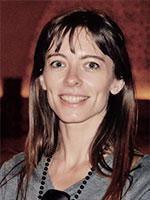 Our Ambassador of the month (August) is Dana Manuela Savulescu, medical writer for Bioforum. Dana has conducted multiple interviews on behalf of Immunopeadia and also updated some of our MCQs.
Our Ambassador of the month (August) is Dana Manuela Savulescu, medical writer for Bioforum. Dana has conducted multiple interviews on behalf of Immunopeadia and also updated some of our MCQs.
Research interests: immunology of pregnancy, development of the immune system in infants, the relationship between the endocrine and immune systems, HLA antibodies, immune tolerance
Recent publications:
- M Suchard, C Adu-Gyamfi, BM Cumming, Savulescu. Evolutionary views of Tuberculosis: indoleamine 2,3-dioxygenase catalysed nicotinamide synthesis reflects shifts in macrophage metabolism. BioEssays 2020: 42, 1900220.
- D Savulescu, V Duxbury, K Scheuemaier, S Malfeld, A Koen, S Jones, M Groome, S Madhi, C Cutland, M Suchard. The prevalence of HLA antibodies during pregnancy and in new-born babies. American Journal of Reproductive Immunology 2020: 84:e13264.
- CG Adu-Gyamfi, D Savulescu, JA George, M Suchard. Indoleamine 2,3-dioxygenase (IDO)-mediated tryptophan catabolism: leading star or supporting act in TB and HIV pas-de-deux? Frontiers in Cellular and Infection Microbiology. 2019: 9:372.
Why I love immunology: Immunology fascinates me because the immune system has a major role in our overall function, controlling and taking part in so many aspects of the human body! I started my journey as an immunologist after having completed a PhD in molecular and cellular endocrinology of the reproductive axis. I am very interested in the relationship between the immune and the endocrine systems, especially in the context of human reproduction.
I am also fascinated by the evolutionary and philosophical aspects of immunology – why and how did the immune system evolve the way it did, with both innate and adaptive functions, and with its multiple cell types and immune reactions? Also – what is its core role – is it to protect us from infections or rather to prevent us from attacking our “self”; is it to enable us to fight invaders or to make us tolerant, and (philosophically speaking) what is the actual difference between the two?
If I wasn’t an immunologist I would be: An endocrinologist specializing in human reproduction and/or a science journalist.
Tips for young people who want to enter the field of immunology: First thing is – welcome to this fascinating field! Always remember not to take the textbooks as the absolute truth – our knowledge of immunology is constantly evolving.
Also, remember that although we, researchers, categorize immune cells into different types (M1/M2 macrophages, regulatory T cells, etc’), what happens in vivo is probably much more complex than that – cells might be able to transition from one “type” to another and secrete different types of molecules, depending on the context, etc’. In other words, cells don’t know that they are Tregs/M2s, etc’ 😉
And lastly, don’t forget to always keep the big picture in mind, i.e., always ask yourselves – what is the significance of my research questions and findings in the context of the development and evolution of the immune system?
What being an Immunopaedia Ambassador means to me: Immunopaedia is a great platform for sharing my love for immunology and promoting the field.
How I have contributed to Immunopaedia so far: I have composed MCQ for the Autoimmune and Tolerance special focus; I have interviewedDr Nashied Peton, Professor Monika Esser, Dr Heena Ranchod and Professor Caroline Tiemessen for Immunopaedia; I have re-posted several Immunopaedia Breaking News articles on the South African Immunology Society (SAIS) LinkedIn page, which I manage; during the Covid-19 pandemic, I have edited short Immunopaedia Breaking News articles on Covid-19 written by fellow Immunopaedia members and helped build a list of new Covid-19 studies for Immunopaedia members.
You can get in touch with me by: LinkedIn.
July 2021
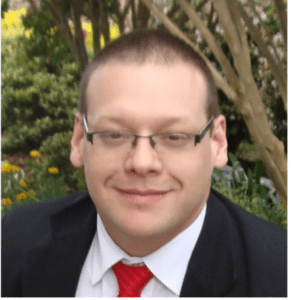 Our Ambassador of the month (July) is David Emmanuel Romanin, Assistant Researcher (Argentinean National Research Council- CONICET) Teacher Assistant Immunology (National University of La Plata, Exact Sciences Faculty). David has made multiple contributions to Immunopaedia including conducting interviews of prominent researchers: Carlos Alberto Fossati and Martin Rumbo, as well as co-developing an online pre-course for the IUIS-ALACI-ACAAI Immuno-Colombia 2021 .
Our Ambassador of the month (July) is David Emmanuel Romanin, Assistant Researcher (Argentinean National Research Council- CONICET) Teacher Assistant Immunology (National University of La Plata, Exact Sciences Faculty). David has made multiple contributions to Immunopaedia including conducting interviews of prominent researchers: Carlos Alberto Fossati and Martin Rumbo, as well as co-developing an online pre-course for the IUIS-ALACI-ACAAI Immuno-Colombia 2021 .
Why do you love immunology? I love immunology because it is a fascinating and dynamic discipline. It is constantly evolving, with new discoveries and interrelationships among all the cells and systems in the organism. Since the immune system is our natural defense against pathogens and diseases, understanding how it works and how we can improve it is the gate to a new way of thinking medicine and interventions.
If you were’t an immunologist what career would have chosen? If I have to answer about something not related at all I would choose data scientist. It is a super interesting and necessary discipline, and every year more and more data analysts are needed.
Tips for young people who want to become immunologists? Don’t try to understand it all at once. BE patient but over all BE constant. You need several lifetimes to understand the role of each molecule and cell and their relationships and this knowledge is ever growing. Have a general idea, focus and learn everything about your particular field, but never stop being curious about other related and non-related fields. You never know when it WILL be related to yours.
What does being an Ambassador mean to you? I teach immunology since 2012 at the National University of La Plata, in Argentina. Immunopædia is a wonderful resource to be up-to-date in many fields that are not my main topic of research. As I mentioned before the immune system is related to every cell and organ, the interactions seem to be infinite and being up-to-date on other fields may give you the chance to be the first to notice one of these interrelations. Becoming an ambassador makes me feel proud about contributing, at least a little, to the general knowledge library.
How have you contributed to Immunopaedia so far? I am relatively new to Inmunopædia, so far I have helped on the preparation of the IUIS-ALACI-ACAAI Immuno-Colombia 2021 course revising material for the site and lessons. I have also written some interviews to some of the Argentinians immunologists, Carlos Alberto Fossati and Martin Rumbo, to spread the voice about what it is done here in the South.
You can get in touch with me via Research Gate, Google Scholar and of course via email to dromanin@biol.unlp.edu.ar
June 2021
Our Ambassador of the month (June) is Amy Mónaco, research associate and doctoral student at the Departamento de Desarrollo Biotecnológico at the Instituto de Higiene (Facultad de Medicina – Universidad de la República). Amy conducted a video interview highlighting why she became an immunologist, her research interests and experience co-developing an online pre-course for the IUIS-ALACI-ACAAI Immuno-Colombia 2021 .
Not immunology focused but from the point of view of the pathogen instead. Anyways, those are two sides of the same coin!
If I wasn’t an immunologist I would be: I have been asked this before and it does not change overtime. I would probably be a chef! Cooking is like following protocols in the lab as well as being creative, and both professions are constantly under pressure. But cooking has a more immediate payoff! 😉
You can get in touch with me via amonaco@higiene.edu.uy; LinkedIn: Amy Mónaco Patiño
April 2021
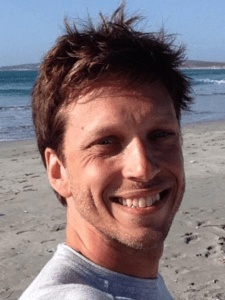 Our April Ambassador of the month is Theodorus van den Broek, Clinical resident medical microbiology and Senior Postdoctoral Research Fellow at the Center for Translational Immunology (CTI) and the medical microbiology department, University Medical Center Utrecht (UMCU), The Netherlands. Theo has contributed to Immunopeadie by writing multiple research summaries. He also recently took part in the Nature Webcast Series on How to master peer review.
Our April Ambassador of the month is Theodorus van den Broek, Clinical resident medical microbiology and Senior Postdoctoral Research Fellow at the Center for Translational Immunology (CTI) and the medical microbiology department, University Medical Center Utrecht (UMCU), The Netherlands. Theo has contributed to Immunopeadie by writing multiple research summaries. He also recently took part in the Nature Webcast Series on How to master peer review.
Research interests: T cell development, regulation and plasticity, and their role in generating protective immunity (in early life)
Recent publications:
- T. van den Broek. (2020) How I started a journal for postdoctoral researchers. Nature
- T. van den Broek & J.Gould. (2020) Coronavirus: postdoc winners need paid extensions. Nature Jul
- T. van den Broek, J.A.M. Borghans & F. van Wijk (2018). The full spectrum of human naïve T cells. Nat Rev Immunol.
Why I love immunology: The immune system is an intriguing and complex system that can recognize self from non-self and has the potential to eliminate harmful molecules and cells. This system needs to be appropriately balanced as a disbalance can result in persistent and chronic infections, autoimmune diseases, and cancers, among other things. Of particular personal interest is how the immune develops during the early stages of life and adapts to a plethora of immune stimuli, as well as the evident differences between aged and young immune cells and their role in immunity. The system’s overall complexity and its continuous involvement in all areas of biology make it a fascinating field of study.
If I weren’t an immunologist, I would be: Medical doctor
Tips for young people who want to enter the field of immunology: You have to be intrigued and fascinated by the concept of immunology, as in any field of study, as the system’s complexity might initially be overwhelming. The area of immunology is in continuous movement. The discovery of new cell types, functions, disease associations, and new techniques makes it a very dynamic environment in which novel research fields continuously develop.
Also, I would advise you to find a great mentor. A mentor can fuel or halt your enthusiasm in immunology and general research interest. It is essential that your mentor has a clear interest in teaching and training the next generation of immunologists.
What being an Immunopaedia Ambassador means to me: I believe that the next generation of scientists’ training and education plays a massive part in the overall understanding and expansion of scientific knowledge in the long run. Being part of the Immunopaedia community provides me with the opportunity to contribute to immunology education and training on an international level. Being an ambassador makes me very proud and I am glad to able to contribute to its growth.
How I have contributed to Immunopaedia so far:
I have contributed three articles to the breakings news page and I try to promote Immunopaedia at every opportunity.
- Hematopoietic stem cell transplantation cures HIV
- Class-switch recombination of antibodies occurs prior to germinal center formation.
- Lack of interference by type I interferons leads to severe COVID-19
You can get in touch with me by: Website; LinkedIn & Twitter
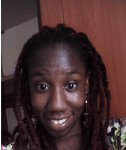 March 2021
March 2021
This month’s ambassador of the month is Vanessa Mwebaza Muwanga, Doctoral candidate at the University of Cape Town. Vanessa officially joined the Immunopeadia team in early 2020, however, she has been contributing to the website since early 2019. Vanessa has written multiple immunology summaries on Tuberculosis immunology and recently conducted two Immunologist of the month interviews of FATOUMATTA DARBOE and SIMON KIMUDA.
Research interests: Tuberculosis diagnostics, host-directed therapies, co-morbidities i.e. TB and type II diabetes and the role of PD-1 in TB disease progression especially in individuals with HIV.
My PhD project involves analysing multiple transcriptomic signatures and identifying one that highest potential to move forward for development of a point-of-care diagnostic test for TB.
The pandemic in 2020 definitely set my timelines back as far as carrying out any lab work was concerned. I decided to channel my energies more towards accomplishing each project milestone that did not require me being in the laboratory. I also had to find new ways to effectively communicate remotely with other members of my research team as we all worked from home.
Why I love immunology:The immune system is one of the most intelligent and fascinating systems of the body that also plays a very vital role in keeping us alive and healthy. There is still so much left for us to discover and understand about how the immune system operates and I want to contribute to those discoveries.
If I wasn’t an immunologist I would be: a baker and a writer.
Tips for young people who want to enter the field of immunology: Good mentorship is everything so please invest in it. Do not let yourself progress your career alone when there are people out there willing to guide you through. The field of Immunology is constantly evolving so it is very important to keep up to date with the latest literature so that one has the opportunity to enhance their current research, but also develop new ideas based on what is happening now.
What being an Immunopaedia Ambassador means to me: It has provided me with an opportunity to showcase my scientific writing skills, stay up to date with upcoming research in the field of Immunology but also highlight the work done by very amazing Immunologists the world over but within Africa in particular.
How I have contributed to Immunopaedia so far: I have written 5 breaking news articles that can be found on the Immunopaedia website:
- TB episode following PD-1 blockade
- Targeting the metabolic profile of latently infected macrophages as a potential treatment for HIV
- Aiding TB vaccine studies with the use of a mycobacterial growth inhibition assay
- The emerging role of IL-26 in fighting against intracellular microbes
- Impact of intermediate hyperglycaemia and diabetes on immune dysfunction in TB
I have also carried out interviews with two young budding Immunologists, Simon G. Kimuda & Fatoumatta Darboe, that are featured in the February and March (2021) Immunopaedia newsletters, respectively.
Contact Details:
Twitter: @muwitheninja4Xt, LinkedIn or email me @ mwebazavanessa@gmail.com or mwnvan001@myuct.ac.za
February 2021
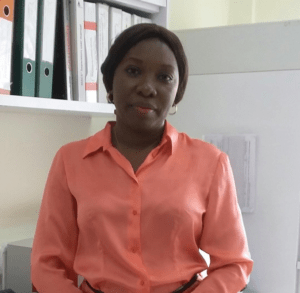 This month’s Ambassador of the month is Rebecca Chukwuanukwu, Lecturer and Research Scientist based at the Nnamdi Azikiwe University in Awka (Nigeria). Rebecca joined the Immunopaedia team in early 2020, despite being a relatively new to the family, she made an enormous contribution as one of the Rapporteurs for the Immuno-Ethiopia course that took place last year (pre-COVID lockdown). During the course, she also interviewed many of the faculty members: Claire J Hoving; Hans-Martin Jäck; Fabienne Tacchini-Cottier and David Sacks. Rebecca’s research interests include immunity to tuberculosis, HIV and malaria.
This month’s Ambassador of the month is Rebecca Chukwuanukwu, Lecturer and Research Scientist based at the Nnamdi Azikiwe University in Awka (Nigeria). Rebecca joined the Immunopaedia team in early 2020, despite being a relatively new to the family, she made an enormous contribution as one of the Rapporteurs for the Immuno-Ethiopia course that took place last year (pre-COVID lockdown). During the course, she also interviewed many of the faculty members: Claire J Hoving; Hans-Martin Jäck; Fabienne Tacchini-Cottier and David Sacks. Rebecca’s research interests include immunity to tuberculosis, HIV and malaria.
“Their overlapping epidemiology led me to study the modulation of the immune system in these diseases and in co-infection. I am currently working on a project on Hepatitis among pregnant women. I am also interested in vaccine design and adverse events of vaccination.”
My recent publications include:
- Chukwudozie O. S, Chukwuanukwu R.C, Iroanya O.O, Eze D.M, Duru V.C et al.(2020). Attenuated Subcomponent Vaccine Design Targeting the SARS-COV-2 Nucleocapsid Phosphoprotein RNA Binding Domain: In Silico Analysis. Journal of Immunology Research. Article ID 2837670. https;//doi.org/10.1155/2020/2837670
- Chukwuanukwu R.C, Uchenna N.O, Mbagwu S.I, Chukwuanukwu T.O (2019).Cryptoccocus neoformans seropositivity and some haematologic parameters in HIV seropositive subjects. Journal of Infection and public Health. 13 (7),1042-1046.
- Chukwuanukwu R.C, Onyenekwe C., Martinez-Pomares L., Singh S., Amilo G., Agbakoba N., Okoye J. (2017). Modulation of the immune responses to Mycobacterium tuberculosis during malaria/ tuberculosis co-infection. Clinical and Experimental Immunology. 187(2): 259-268.
Why I love immunology: I just love that everything is somehow connected [to the immune system]. Ever since I came across Immunology, I have been intrigued by this field. Vast, amazing, deep and interesting. There’s so much of it that you can find an area to love.
If I wasn’t an immunologist I would be: I would be a haematologist. I had the opportunity to start studying haematology first before my love for Immunology won and I changed direction and started a second Masters degree in Immunology & Allergy.
Tips for young people who want to enter the field of immunology: Immunology is a relatively new field in medical science and there is still lots of space and loads of uncharted territory. It may appear difficult at first especially if you are coming from certain backgrounds (with limited exposure to the field). It could take a lot of background study. If you love it, follow your heart. Where there is a will there is a way. Finally, don’t forget to get yourself a mentor.
Women and Girls in Science: There continues to be a wide gender gap with much fewer females in science, technology, engineering and mathematics (STEM) fields. The strong patriarchy system in Africa continues to drive this disparity. The more enlightened a family/community, the better the chances that females are not just given a chance but encouraged to pursue their dreams in STEM. Girls and women have been conditioned to believe that certain areas are for males. Intentional re-orientation and advocacy programs targeted at girls in secondary schools drive positive change. This I believe and try to support by getting involved. Having female role models are quite useful as well. I am always pleased to give career talks, health talks, or any other opportunity to pass the message across to young females. Knowledge is power.
What being an Immunopaedia Ambassador means to me: It means I get an opportunity to contribute to knowledge about the field of Immunology. It means I am willing to support those behind this laudable Immunopaedia project of advancing global Immunology education any way and whenever I can. It also means I encourage others to take advantage of the resources and opportunities on the website which encourage global sharing of knowledge and information.
How I have contributed to Immunopaedia so far: I am relatively new to Immunopeadia but so far, I have worked as a rapporteur. For this task, I helped summarise talks/lectures given by resource persons during Immuno-Ethiopia training program for the Immunopaedia website:
- Immuno-Ethiopia: Fungal epidemiology and immunology
- Immuno-Ethiopia: Malaria Highlight 2
- Immuno-Ethiopia: Malaria Highlight 1
I have also had the opportunity and pleasure of conducting video interviews of eminent Immunologists: Professor Hans-Martin Jäck Interview, Head of the division of molecular Immunology, Freidrich-Alexander University Erlangen; Fabienne Tacchini-Cottier, Director of WHO Immunology Research & training institute and Associate Professor, University of Lausanne; David Sacks of the National Institute of Allergy & Infectious diseases, Bethesda and Claire J Hoving Interviewof the institute of infectious diseases & molecular medicine. University of Cape Town. These are also posted on the Immunopaedia website.
Contact Details:
Emails: rc.chukwuanukwu@unizik.edu.ng/beckytchuks@yahoo.com ;
Phone+234807150839










